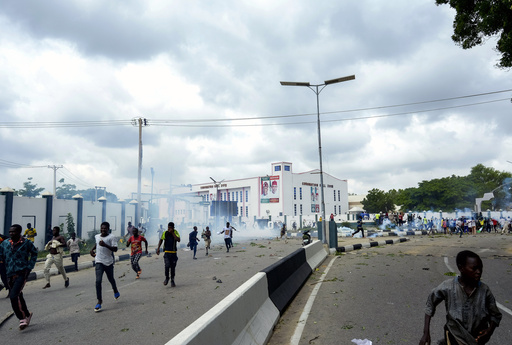
ABUJA, Nigeria — On Tuesday, Nigerian authorities released 29 children who had been held for over two months, facing potential capital punishment due to their alleged involvement in protests against the country’s escalating cost-of-living crisis. This decision came after increasing demands for their liberation.
The children, aged between 14 and 17, appeared joyful and lively as they waved to cameras outside a court in the capital, Abuja, marking a stark contrast to their initial court appearance, where they looked malnourished and poorly dressed, with some even collapsing from fatigue.
These minors were part of a larger group of over 70 individuals facing severe charges that included property destruction, mutiny, and treason, which could lead to the death penalty. Their arrests followed protests in August that highlighted significant unrest in the country, during which security forces killed several demonstrators and apprehended hundreds more.
Ado Abdullahi, the father of two detained boys, asserted that his sons did not participate in the protests happening in their home state of Kano. Instead, he explained they were simply running errands when they were unexpectedly arrested and taken to Abuja. “The police just came and took them,” Abdullahi recounted while he awaited their return home post-release.
Another parent, Ikililu Sani, shared that his son, Habibu, was arrested while picking up his motorcycle from a repair shop. There was little information available about the children’s detention until their court appearance, which sparked widespread outrage and rekindled concerns regarding human rights violations in Nigeria, Africa’s most populous nation.
Facing rising pressure from activists and the public, President Bola Tinubu of Nigeria commanded the immediate release of the minors and called for an investigation into the law enforcement agents responsible for their apprehension and subsequent prosecution.
Initially, the police defended their actions, although they announced later that they would initiate an investigation into accusations of mistreatment of the minors during their custody.
Advocates and legal representatives called upon the Nigerian government to ensure the children’s well-being and extend educational support to them. According to counsel member Marshal Abubakar, the release of these children represents merely “the first step in the right direction.”
